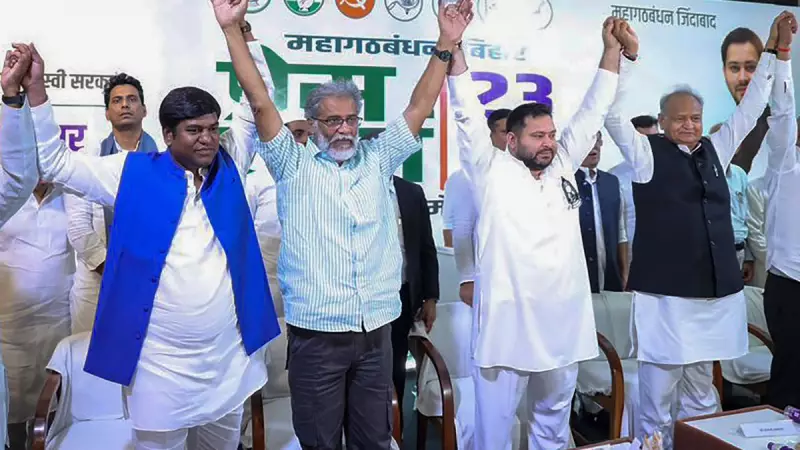
In a significant political move that could reshape Bihar's electoral landscape, the opposition 'Mahagathbandhan' (grand alliance) has unveiled plans to establish multiple deputy chief minister positions representing various religious and social communities if they secure victory in the upcoming state elections.
Tejashwi Yadav, the prominent leader of Rashtriya Janata Dal (RJD) and former deputy chief minister, made this groundbreaking announcement during an exclusive interaction with India TV. The revelation comes as political parties intensify their preparations for the crucial Bihar assembly polls.
Strategic Representation Across Communities
The proposed political framework aims to ensure comprehensive representation across Bihar's diverse demographic spectrum. "We are committed to establishing several deputy chief minister positions that will represent different religious communities and social sections," Yadav declared, emphasizing the alliance's dedication to inclusive governance.
This innovative approach marks a departure from conventional political structures and demonstrates the opposition's strategy to address the aspirations of various communities through direct representation in the state's highest administrative levels.
Countering BJP's Political Narrative
Political analysts view this announcement as a strategic counter to the ruling BJP's political narrative. By promising multiple deputy CMs from different religious backgrounds, the Mahagathbandhan appears to be positioning itself as a champion of social inclusion and minority representation.
The timing of this revelation is particularly significant, coming at a crucial juncture when political parties are fine-tuning their election manifestos and campaign strategies. This move could potentially alter the traditional voting patterns in the politically sensitive state of Bihar.
Potential Impact on Electoral Mathematics
The proposal for multiple deputy chief ministers represents more than just symbolic politics. It signals a fundamental shift in how coalition governments might structure power-sharing arrangements in India's increasingly complex political environment.
"This isn't merely about positions; it's about ensuring every community feels represented in the governance process," Yadav emphasized during the discussion, suggesting that the alliance is banking on this inclusive approach to consolidate its voter base across different social segments.
As Bihar prepares for another intense electoral battle, this announcement has set the stage for a fascinating contest between competing visions of representation and governance. The Mahagathbandhan's bold proposal is likely to dominate political discourse in the coming weeks, potentially influencing voter sentiment across the state's diverse constituencies.






